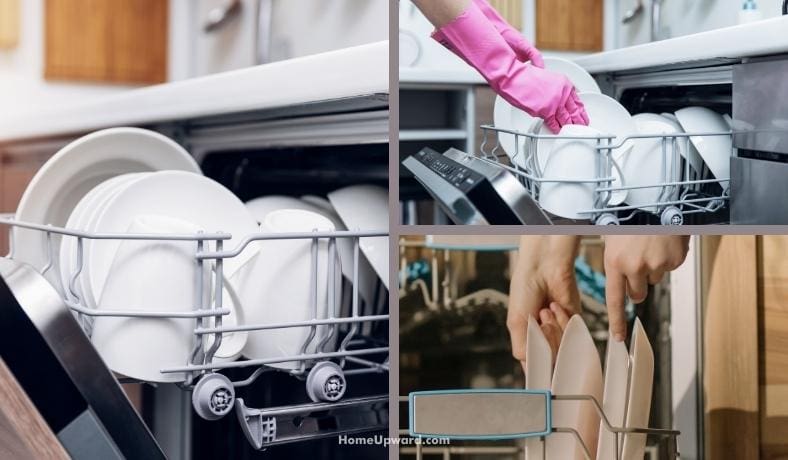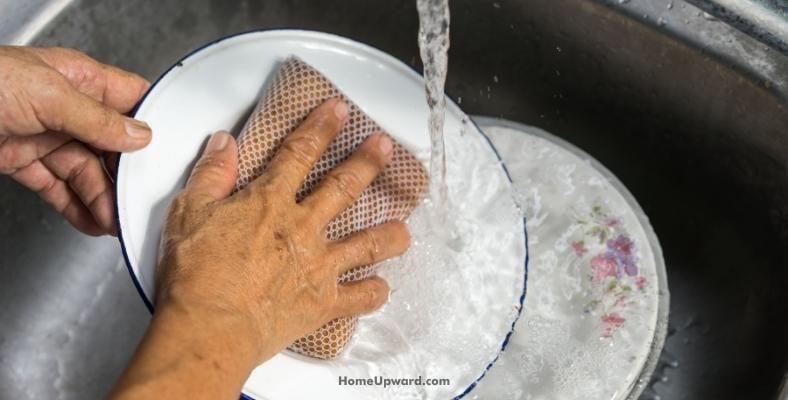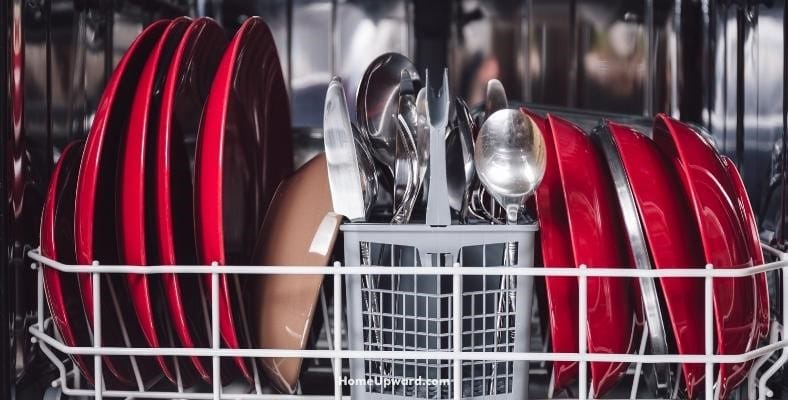Contents
Can you leave dishes in the dishwasher overnight?
Since everyone leads busy lives, folks don’t always have the opportunity to empty the dishwasher before they turn in for the night. If you find that this is the position you’re in more often than not, this question could be the difference between a late night and a normal start the next day.
So, can you leave dishes in the dishwasher overnight? The big concern for you should be whether the dishes in the dishwasher are clean or dirty.
Leaving Clean Dishes in it Overnight
If you run the dishwasher before heading to sleep then you have nothing to worry about. By the time your dishwasher has finished, it will have cleaned the food particles and bacteria off the dishes, leaving your plates sanitized.
Because of this, you can turn in for the night feeling guilt-free. Just remember to put the dishes away when you get up the following day!
Leaving Dirty Dishes Overnight
Leaving dirty dishes in the dishwasher overnight is a little more concerning. Whether this is ok or not depends on how thorough your dishwasher is while running.
Modern dishwashers have become much better at distributing water and detergent and getting to the right temperature. Since bacteria can only exist up to a specific temperature, dishwashers tend to run with warm water to kill the bacteria.
However, if your dishwasher is on the older side, it might be better to run the dishwasher and clean up the dishes as best you can before turning in.
That way you can inspect the dishes when they finish up and make sure that everything is clean.
Should You Rinse Dishes Before Putting Them in the Dishwasher?
While modern dishwashers are better at sanitizing dishes, it’s still important to scrape the leftover food from your dishes before putting them into the dishwasher. There are two reasons for this:
- The buildup of food residue
- Bacteria.
Most modern dishwashers can distribute water and detergent in a way that prevents food residue from building up. However, to keep this residue from going into your water pipes, most dishwashers have a filter or screen over their exit port.
This filter catches large chunks of food while rinsing and drying your dishes.
Food residue on plates and dishes
If you leave a lot of food residue on your dishes this filter can build up with gunk over time. While this is harmless if you notice it before it’s a problem, it will be a problem if you don’t clean it.
The blockage can lead to slow drainage from the dishwasher and a buildup of bacteria.
Disease-causing bacteria can also build up over time if your dishwasher isn’t able to get hot enough to kill them. Bacteria enjoy your food just as much as you do, making it a great place to get the nutrients they need to multiply and spread disease.
Both of these issues can be prevented by rinsing or scraping your dishes before they go into the dishwasher, which removes a large amount of the residue from the dishes, including large chunks that can clog things up.
By doing this, the dishwasher can excel at its job: sanitizing your dishes.
To best remove this residue, scrape the leftover food into the garbage before washing dishes with dish soap. Doing this will let the dishwater detergent and rinse aid remove any remaining residue and kill the bacteria on the plates.
Is It Bad to Run the Dishwasher and Washing Machine at the Same Time?
From an electrical standpoint, nothing stops you from running the dishwasher and the washing machine simultaneously. However, that doesn’t mean there is nothing to think about before flipping both appliances on.
Before running these two appliances together, think about your water heater.
Depending on what your washing machine is cleaning, you may run out of enough hot water for both of these appliances to function as they should. While not all laundry needs hot water, your dishwasher always needs hot water to sanitize your dishes.
So if you’re also trying to sanitize your laundry for example that means both appliances will need hot water.
Also, think about the water pressure of your living space. If both of these appliances call for water, that could drain the house’s water pressure while they run. If you need to use a sink or a toilet, you might not have enough water pressure to use these appliances.
Plus, that assumes that both the washing machine and the dishwasher get enough water pressure!
There is nothing inherently dangerous about using the dishwasher and washing machine at the same time. Just make sure that your water system can handle the task.
How Long Should You Let Dishes Sit in the Dishwasher After It’s Done?
While your sanitized dishes can stay in the dishwasher for a while, it’s best to empty the dishwasher after the dishes are no longer hot from the heated dry.
The easiest way to cool down your warm dishes is to pop open the door for the dishwasher when it’s done running. This simple action will vent a lot of steam out from the dishwasher, preventing any buildup of residue or funny smells from bacteria that might have lingered.
Many modern dishwashers have an auto-open function for their doors, so you won’t have to do this yourself. Either way, once you have dry dishes, it’s best to move them out of the dishwasher as soon as possible.




